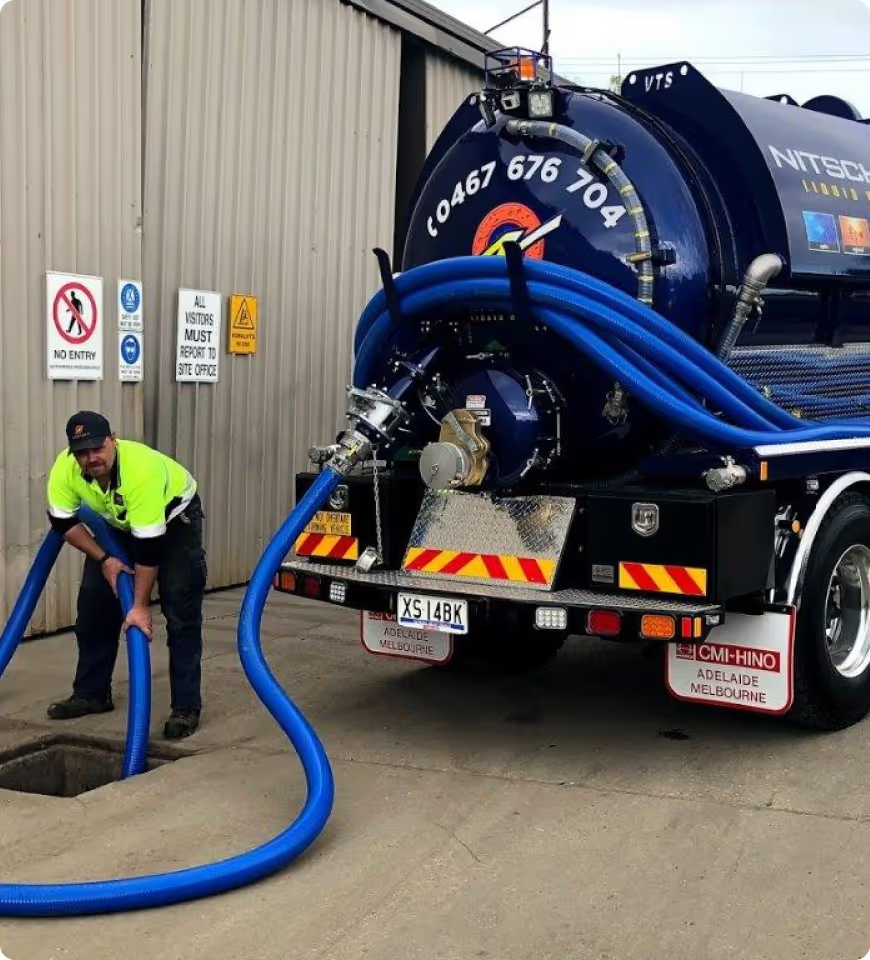Waste Management Plans for Commercial Establishments

Key Takeaways
- Commercial establishments produce larger and more complex waste streams than households, making structured waste management plans essential.
- Effective plans cover waste audits, collection strategies, compliance, roles, and measurable targets to reduce landfill and improve recycling.
- Councils often require detailed waste management plans for new commercial developments to ensure sustainability is built into design and operation.
- Construction and demolition projects benefit from early planning, on-site separation, and reuse strategies that divert 60–80% of waste from landfill.
- Waste consultants add value by conducting audits, ensuring compliance, and supporting ongoing improvements.
- Signal Waste & Recycling partners with Adelaide businesses and developers to design, implement, and manage comprehensive waste plans that cut costs and improve sustainability.

Every business generates waste – whether it’s packaging in retail, wastewater in a car wash, or construction waste from a new development. Unlike households, the amount of waste generated by commercial sites is usually larger, more complex, and requires stricter controls.
That’s why having clear, practical waste management plans is essential for every business in Adelaide. A strong plan not only ensures compliance with council and environmental regulations, but also reduces costs, improves sustainability, and enhances your company’s reputation.
What Is Waste Management?
Waste management refers to the structured collection, storage, treatment, and disposal of different waste types produced by a site or organisation. It covers everything from hard waste collection to recycling, and from safe chemical disposal to planning for demolition or construction projects.
Without a proper waste management plan, rubbish simply piles up in landfills – adding pressure to local councils and wasting valuable resources. But with the right approach to managing waste, businesses can turn waste into a resource, achieving better waste outcomes while lowering costs.
Why Businesses Need Comprehensive Waste Management Plans
A comprehensive waste management plan sets out how a business will handle the waste generated on-site, including:
- Segregating waste types – recyclable, reusable, general refuse, and hazardous
- Identifying the best waste and recycling methods for each material
- Assigning responsibilities to a waste team or staff members
- Setting measurable targets to improve waste outcomes
- Ensuring compliance with environmental laws and planning permit requirements
Such management plans are not just compliance documents – they help businesses reduce costs, demonstrate sustainability, and make a significant contribution to reducing landfill pressure in South Australia.
Waste Management and Commercial Developments
When it comes to commercial developments, councils often require detailed waste management plans as part of the planning permit process. This ensures that developers take waste minimisation into account before a project begins.
For example, in a commercial development such as an office tower, a plan might outline:
- How construction waste will be separated and recycled during the build
- Where on site bins and compactors will be located for efficient collection
- How much space will be dedicated to waste storage in the final design
- Strategies to reduce waste generated during fit-out and operation
- Responsibilities for ongoing waste and recycling once tenants move in
By embedding waste planning into the development process, councils ensure that new developments support sustainability from day one.
Construction Waste and Demolition Projects
The construction industry is one of the largest producers of waste. From timber offcuts to concrete rubble, construction waste and demolition debris often make up a major portion of landfill.
Forward-thinking management plans for construction sites include:
- Engaging a waste consultant early in the project to prepare recycling strategies
- On-site separation of construction waste (concrete, steel, timber, plasterboard)
- Diverting reusable materials to secondary markets
- Providing clear signage and bins for workers to manage waste properly
- Setting targets to divert at least 60–80% of waste from landfill
This structured approach not only reduces disposal costs but also creates a significant contribution toward the circular economy by keeping raw materials in use longer.
Elements of an Effective Waste Management Plan
Whether for a restaurant, warehouse, or commercial development, an effective waste management plan should include:
- Waste audit – Identify all waste types generated by your business.
- Collection strategy – Decide how waste and recycling will be collected and stored.
- Processing and disposal – Outline how each stream will be treated (e.g. recycling, landfill, composting).
- Compliance considerations – Ensure the plan meets council guidelines, state legislation, and environmental rules.
- Roles and responsibilities – Create a waste team or assign duties to staff.
- Goals and targets – Set measurable objectives to improve waste outcomes (e.g. reduce landfill by 20%).
- Monitoring and reporting – Track performance, adjust processes, and report results to management.
Residential and Commercial Developments: A Comparison
While residential developments often focus on hard waste, kerbside recycling, and organics, commercial developments tend to deal with:
- Higher volumes of waste generated daily
- More complex waste streams, including hazardous and liquid waste
- A need for larger storage and collection areas
- More detailed reporting and compliance requirements
In both cases, strong management plans are vital for sustainable growth.
How Waste Consultants Add Value
Engaging a professional waste consultant can help businesses and developers create comprehensive waste management plans that balance compliance, cost savings, and sustainability. A consultant can:
- Conduct detailed audits of waste processes
- Recommend equipment, bins, and on-site systems
- Help with planning permit applications and council submissions
- Train staff to manage and segregate waste effectively
- Provide ongoing monitoring to ensure continuous improvement in waste outcomes
The Role of Councils and Planning Permits
Most local councils now require waste management plans to be submitted alongside planning permits for new developments. This ensures that waste is considered as early as design stage – from bin room sizing to vehicle access for collection trucks.
For businesses, this means waste planning is no longer optional – it’s an essential part of development approval.
Partnering With the Right Waste and Recycling Provider
No commercial enterprise can completely avoid waste – but with the right partner, it’s easier to manage. That’s where Signal Waste & Recycling comes in.
As Adelaide’s trusted provider of waste and recycling services, we help businesses and developers:
- Prepare detailed management plans for planning permit applications
- Provide wheelie bins, compactors, and front lift bins for all waste types
- Collect hard waste, recyclables, and general rubbish promptly
- Support sustainability targets by maximising recycling and minimising landfill
- Ensure compliance with local council and environmental regulations
With over 30 years in the industry, our expertise makes it simple for clients to create and implement comprehensive waste management plans that deliver better waste outcomes.
Call us today on 08 8162 5544 or contact us online for tailored advice.
FAQs on Waste Management Plan
What is a waste management plan?
It’s a structured document that outlines how a business or development will manage the waste generated, from collection to disposal and recycling.
Do new developments need management plans?
Yes – most councils require a waste management plan with your planning permit to ensure sustainable waste and recycling practices are included in the design.
How can a waste consultant help?
A waste consultant ensures your plan is practical, compliant, and cost-effective. They can train staff, improve processes, and recommend equipment.
What counts as hard waste?
Hard waste includes bulky items such as furniture, whitegoods, and materials not suitable for kerbside bins. These require special collection and disposal.
Why is construction waste a focus?
Construction waste makes up a large portion of landfill. By planning for reuse and recycling, developers can divert significant volumes and make a significant contribution to sustainability.
Signal Waste & Recycling – Adelaide’s Waste Management Partner
Whether you’re a commercial development, residential development, or small business, Signal Waste & Recycling can design and implement effective waste management plans to help you comply, reduce costs, and enhance sustainability.
Our modern fleet, experienced team, and decades of expertise mean we deliver safe, reliable, and eco-friendly waste and recycling services across Adelaide.
Proudly Serving South Australia for Over 35 Years
Simplify your waste management with Signal Waste & Recycling. We offer customised solutions for businesses in the Adelaide metro and surrounding area.

